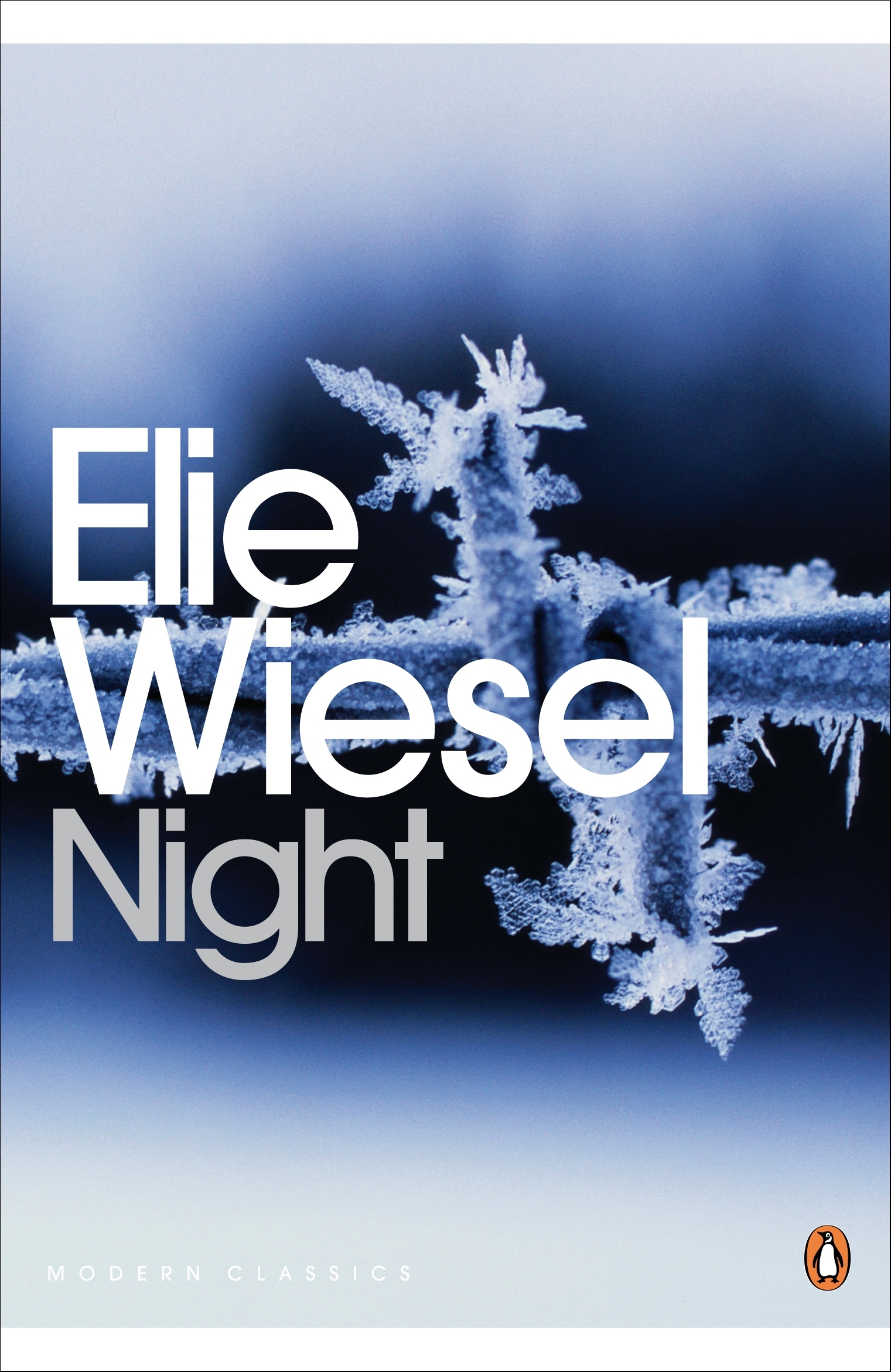There are two books that I have encountered so far that have made me bawl. One is The Fault in Our Stars by John Green. The other? Night, by Elie Wiesel. Here, we follow the powerfully devastating journey of a fifteen year old boy who starts in a Ghetto and moves to Auschwitz, barely making it through death marches and injuries. We follow the treacherous work of the SS and the desperate pleas from the Holocaust victims.
While this book is short and can be finished in a matter of an hour or two, its lack of verbosity doesn't take away from the gut-punching reaction one feels after turning the final page. If anything, the staccato nature of the phrases ads power. The sentences that gave the clearest, most horrific shots of death were often the shortest. After witnessing several hangings (many of which were children), Wiesel says "that night the soup tasted of corpses" (62).
Elie Wiesel, still a hopeful, inspired child who wishes to dive into readings on his religion, gives a stark portrayal of the overnight transformation from naive child to desolate adult. The prisoners' indifferent reactions to death show more than just weakness: it shows the reader how monotonous, how normal, death was.
Yet no matter how terrified Wiesel was, his bravery wins over his wishes not to face the horrific turn of events. To remember is to inform, and Wiesel stresses that he certainly cannot forget: "Never shall I forget that nocturnal silence which deprived me, for all eternity, of the desire to live. Never shall I forget those moments which murdered my God and my soul and turned my dreams to dust. Never shall I forget these things, even if I am condemned to live as long as God himself. Never" (32).
Just as Elie Wiesel never forgets the oppression, the torture, it is difficult to forget the power of his words. It's an upsetting book, but not in a way that makes you wish to turn away from the story. We are able to understand what humans have come through--what they have faced--only to come out stronger.

No comments:
Post a Comment